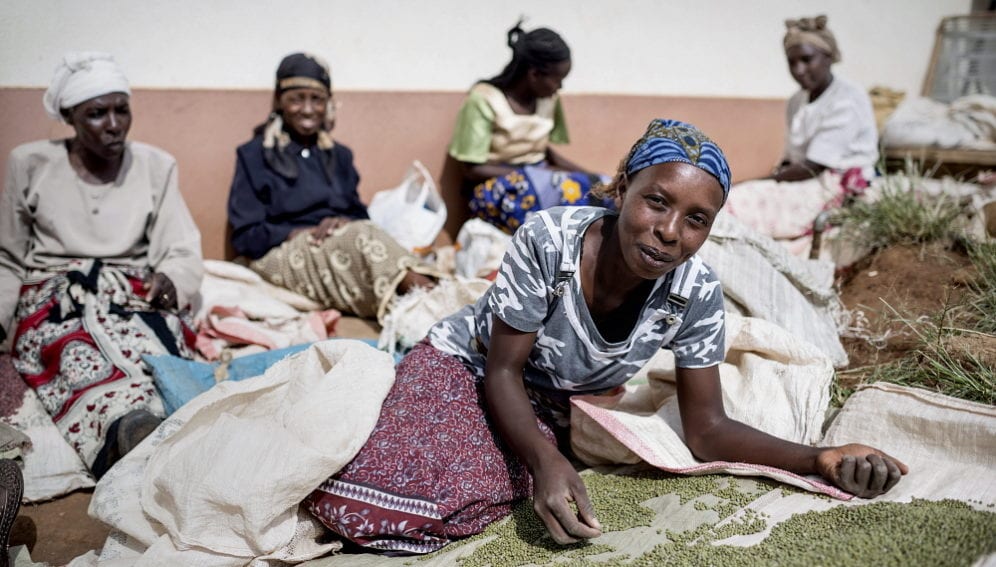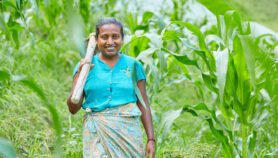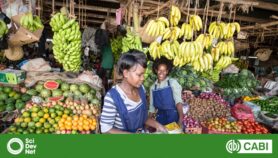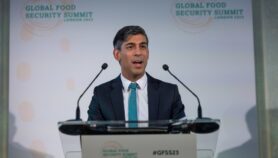By: Jon Spaull
Send to a friend
The details you provide on this page will not be used to send unsolicited email, and will not be sold to a 3rd party. See privacy policy.
[MAPUTO, MOZAMBIQUE] “Your granary will never be filled by your neighbour.” This is a Mozambican saying that was used by Graça Machel, member of International Panel of Elders and a former Mozambican minister of education, to illustrate the point that Africa cannot rely on outside help to achieve food security.
It was a recurring theme at the Regional Universities Forum for Capacity Building in Africa (RUFORUM) conference here in Maputo at which I heard her speak: Africa must take ownership of the responses to the challenges it faces in the twenty-first century.
It was a theme also elaborated on by Nkosazana Dlamini Zuma, chair of the African Union Commission. While appreciating the assistance of foreign donors she said it “cannot be the mainstay of our development — no country has ever developed on donor money”. As the UN post-2015 development goals were in the process of being finalised, Africa needed its own vision and goals, she said.
“We must tell them what we need to do post-2015. We must know what we want and do it irrespective of what other people say,” she told the audience.
“Africa has no business in the food import business.”
Akinwumi Adesina
The challenges the African continent faces to achieve food security for the whole continent is daunting. Machel reported that 200 million Africans go hungry every night. But there appeared to be a consensus that they were not insurmountable: Africa had the resources and the answer to these problems lying within its borders. The solution lay in innovative solutions both to research funding and to increasing crop yields.
RUFORUM was created ten years ago to enable universities in Eastern, Central and Southern Africa to engage collectively on addressing issues of poverty and hunger across the continent, in recognition that universities needed to be more connected to the new challenges facing rural communities in Africa. Starting with eight universities as members, it has now expanded to encompass 42 institutions.
For Africa to achieve food security will involve a huge rise in yields to match those of other continents. Yemi Akinbamiijo, the executive director of the Forum for Agricultural Research in Africa (FARA) emphasised that this increase in productivity will be driven by innovation, which in turn will be driven by knowledge. Thus universities have a crucial role as engines for this transformation. Akinbamiijo believes that not only should Africa be food secure by 2030, it should also aim to be the “food basket of the world”.
It was pointed out that 65 per cent of the world’s uncultivated land is located in Sub-Saharan Africa yet it still imports US$35 billion of food a year. As Nigerian minister of agriculture and rural development Akinwumi Adesina remarked: “Africa has no business in the food import business”.
One of the principle reasons for a lack of agricultural development, he believed, was due to agriculture being perceived as a poverty reduction rather than a wealth-producing sector. Africa needs a strong agribusiness and agro-industrial sector and to achieve that the continent “must bring down the walls of the universities,” he said. Connections should be made with the private sector and students given practical and entrepreneurial skills. FARA’s Irene Frempong urged universities to produce more “thinker-doers” — not separate thinkers and doers.
There was a determination expressed at this conference to rise to the challenge of reforming universities to enable them to produce the “skills revolution” needed to transform African agriculture. It will be interesting to see in another ten years how much Africa has progressed towards the ambitious vision of the continent being the food basket of the world. But however far it gets, this conference made it abundantly clear that it will have to be through African designed and driven development.
This is part of the Africa’s PhD Renaissance series funded by the Carnegie Corporation of New York.














